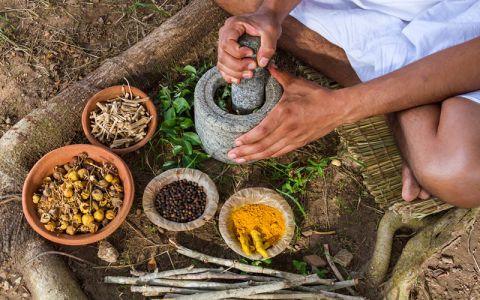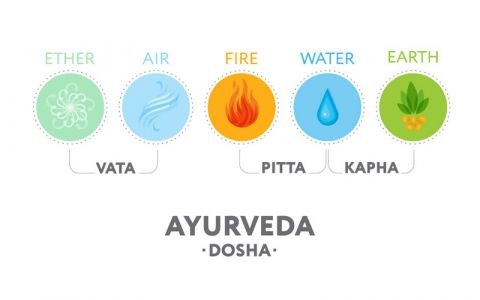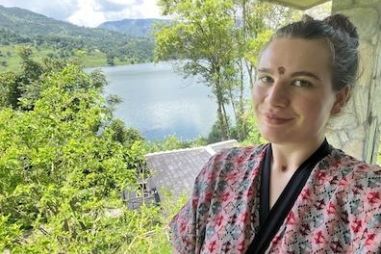India is Ayurveda
Ayurveda, a natural system of medicine, originated in India more than 3,000 years ago. The word ‘Ayurveda’ is derived from the Sanskrit words ayur (life) and veda (knowledge). Thus, Ayurveda translates to knowledge of life. Ayurveda is based on the concept that health and wellbeing depend on a delicate balance between the mind, body, and spirit. The World Health Organization has officially declared Ayurveda recognized as scientific medicine. A complementary and alternative medicine system, and it is becoming increasingly popular as people seek out more natural and holistic approaches to healthcare. In Ayurvedic medicine, practitioners use a holistic approach to healing that includes a variety of techniques, including herbal remedies, dietary guidelines, massage, yoga, and meditation. The goal of Ayurveda is to help people achieve optimal health by restoring balance to their physical and mental state. Would you like to experience what Ayurveda can do for you? Book one of our authentic ayurveda programs in India, the country where it all started. Our health and wellbeing Travel experts are more than happy to advise you.

The history of Ayurveda
Ayurveda has its roots in India and has been practiced for thousands of years, making it an integral part of the country's culture and tradition. Thousands of years ago a holistic natural healing method originated in India. During the Vedic civilization (1500-500 BC), all the beneficial knowledge of that time was recorded in sacred scriptures, which have been passed down through the ages. Now known to us as Ayurveda. Its knowledge has been passed down through generations of practitioners. This has resulted in a rich tradition of Ayurvedic knowledge and expertise that is unparalleled in other parts of the world. India is home to a diverse range of herbs and ingredients that are used in Ayurvedic treatments. Ayurveda is a popular and widely accepted form of healthcare in India, and as a result, it is affordable and accessible to many people. Ayurvedic treatments and remedies are often available in local communities, making it easy for people to access this form of healthcare. Ayurveda assumes that all energies in body and mind must be in balance. If that balance is disturbed, we become ill.

The Dosha's in Ayurveda
Ayurveda states that everything in the universe (including man) consists of five elements: air, water, fire, earth and ether. We find these elements in humans as 'dosha'. There are three doshas: vata (air and ether), pitta (fire and water), and kapha (earth and water). Every person has a unique dosha, which determines your physique, your character traits, your behaviour but also your predisposition to illness. Dosha literally means: that which changes. The dosha you were born with changes with you throughout your life. When the doshas are in balance with each other, we feel happy and healthy. If some doshas are too strong or too weak, you have a risk of physical and mental complaints. An Ayurvedic program never consists of only one thing. It is precisely the sum of medicinal herbs and oils, massages, pranayama, yoga, meditation, ayurveda food, nutritional advice and/or special cleansing treatments that give the best effect. They ensure that the toxins in body and mind are removed or neutralized, and that the energy can flow again. In this way the internal healing processes are stimulated. In fact, the body can heal itself this way.

Why to go to India for an Ayurveda retreat
There are several reasons why Ayurveda in India is considered to be particularly good. Ayurveda has been practiced in India for thousands of years, and its knowledge has been passed down through generations of practitioners, making it an integral part of the country's culture and tradition. This has resulted in a rich tradition of Ayurvedic knowledge and expertise that is unparalleled in other parts of the world. India is home to a diverse range of herbs and ingredients that are used in Ayurvedic treatments. These herbs and ingredients are often grown and processed in a traditional manner, ensuring their purity and potency. India has a large number of highly trained Ayurvedic practitioners who have undergone rigorous training and education in Ayurvedic medicine. These doctors and therapists are well-versed in the principles and practices of Ayurveda and have a deep understanding of how to tailor treatments to an individual's specific health needs and imbalances. Ayurveda is deeply ingrained in Indian culture and is still practiced authentically in many parts of the country. With the support of the government, a lot of research is being done into the medicinal effect of herbs and treatment methods and is practiced in thousands of hospitals in India. Nowhere else in the world can you find so much knowledge together, which is passed on from doctor to doctor and from therapist to therapist.

Excursions on hold
As a holiday destination, India has a lot to offer – but if you go for a (short) Ayurveda treatment, there is a chance that you will not see much of the country. An Ayurveda treatment is intended to relax the body and mind, to cleanse and to gain new energy. Such a course is quite intensive: not only do you receive different treatments per day, all meals - carefully prepared for you - are also adapted to your dosha. In the first week your body has to get used to such a course. You will therefore be regularly checked by the Ayurveda doctor. An excursion would break that cure. Your body will then not get the rest and regularity it needs now. Ayurvedic food is also difficult when you are not in the hotel. Traveling in an air-conditioned car or bus does not fit into the Ayurvedic philosophy either. That is why the doctors advise against making trips during that first week. If you still want to see some of the country, it is better to plan a longer holiday. You can first tour for a week (or longer) to discover the country, and then check in at the hotel to start the treatment. Or book a longer Ayurveda course, where only treatments are scheduled for the first week, and excursions are also offered for the second (or third) week. The treatments are then planned around the trips.

Ayurveda food: healthy, fresh & Very tasty
An important part of Ayurveda treatment is nutrition. By eating the right foods, you can balance your dosha more. Ayurveda offers guidelines on diet and nutrition, including specific foods and spices that are believed to promote good health and balance the doshas. What matters is that your meal contains all the flavors in just the right proportion: sweet, sour, salty, bitter, pungent or astringent. The chefs at our resorts prove that Ayurvedic meals can be very tasty and varied. They cook the most delicious dishes with fresh, local ingredients. Indian vegetable curries with rice, salads and soups. Sometimes with a small piece of fish or meat. Coffee, alcohol and processed food with sugar and fat doesn't fit into an ayurveda diet. In some resorts, the chefs will prepare you a tailor-made dish, precisely tailored to your dosha according to the instructions of the Ayurveda doctor. In other hotels, meals are served in buffet style. Each dish is accompanied by a card on which you can read for which dosha the dish is suitable. Good to know: lunch is often the largest meal of the day. Last tip: each day you have around 2 - 3 ayurveda treatments per day. This can be intensive, not only physically but also mentally. So take your rest in between and try to surrender yourself to a well-deserved time for yourself.

 EN
EN NL
NL BE
BE















